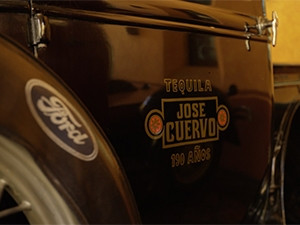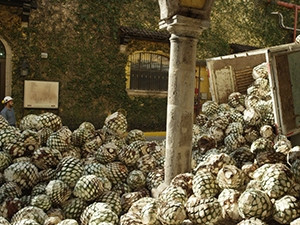
Car parts in the future could be made from the same base plant of the popular party drink, tequila.
Ford Motor Company and Jose Cuervo are exploring the use of the agave plant by-product, left after tequila is made, to develop a sustainable bioplastic material to incorporate in vehicles.
Researchers are testing the material's durability and heat resistance for potential use as wiring harnesses or storage bins.
Ford says initial assessments suggest the material holds great promise due to its durability and aesthetic qualities.
Developing a sustainable composite could reduce vehicle weight and lower energy consumption, while cutting back on the use of petrochemicals.
"There is about 181kg of plastic on a typical car," says Debbie Mielewski, Ford senior technical leader, sustainability research department.
"Our job is to find the right place for a green composite like this to help our impact on the planet."

The growth cycle of the agave plant is a minimum seven-year process. Once harvested, the heart of the plant is roasted, before grinding and extracting its juices for distillation. Jose Cuervo uses a portion of the remaining agave fibres as compost for its farms, and local artisans make crafts and agave paper from the remnants.
Now, the last remaining fibres of the plant will be used to create bioplastic material.
Ford began researching the use of sustainable materials in its vehicles in 2000. The automaker now uses eight sustainable-based materials in its vehicles, including soy foam, castor oil, wheat straw, kenaf fibre, cellulose, wood, coconut fibre and rice hulls.
Share